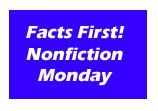I was particularly a fan of the writing in They Fought Like Demons, but I was absolutely fascinated by the subject matter. I realized that I really knew next to nothing about the Civil War aside from (as I described it to my mom) the South seceded, people died, slaves were freed (eventually). So I've been hunting down Civil War books since then and currently have a separate browser window with 17 tabs' worth of various Civil War websites.
So far, I'll Pass for your Comrade is my favorite resource for details on the soldiers because it not only looks at women soldiers (as They Fought Like Demons does; actually, Silvey says in the author's notes that They Fought Like Demons was what inspired her to start researching female Civil War soldiers!) but it provides some great basic Civil War information as well. For example, I've been having a hell of a time figuring out how on earth the armies were organized. I see terms like company, brigade and regiment thrown about without any descriptions of how they're different. Silvey explains that a town would form one or two companies of about 100 soldiers each; ten companies could be placed together to form a regiment of 1000 soldiers, and 40 companies formed a brigade. She also does a walk through of the Battle of Antietam, the bloodiest battle on American soldiers, where at least 8 women disguised as men fought, seven for the Union and one for the Confederacy. While I'm sure she could have included hundreds of pages worth of detail on that battle alone, just enough detail is given that I felt like I knew what happened in that battle (troop movements, who had the tactical advantage, etc) without feeling like I was drowning in information. Some writers get extremely verbose about the Civil War, and while I'm sure it's all fascinating it can be a little intimidating for someone who's researching it for the first time. (Because seriously, I don't remember studying the Civil War. Ever.)
I'll Pass for Your Comrade stays focused on the soldiers, giving as in depth an account as possible for many women. I appreciated that Silvey didn't wander into recaps of what caused the war and the politics of secession and so-on; I read this book to get an accessible look at the women who risked it all to fight in the war. I found it fascinating to read about the respect many of these women soldiers were treated with; there were times where a woman was discovered but would be allowed to stay in the ranks thanks to her proven bravery on the battlefield. Today we are still debating whether it's appropriate for women to participate in combat operations in our military. Women were proving 150 years ago they had what it took to be soldiers alongside men - it's a fascinating aspect of our history and I'm glad these soldiers are finally getting some of the recognition they deserve!
If anyone has any recommendations on great Civil War books that won't take a year and a half to read, I'd love to hear them!
